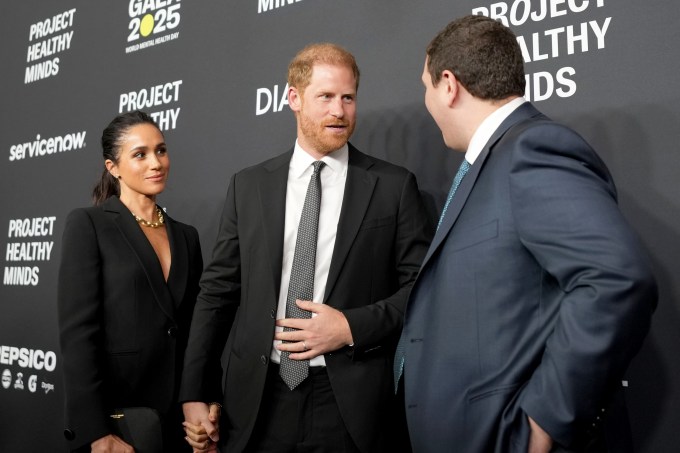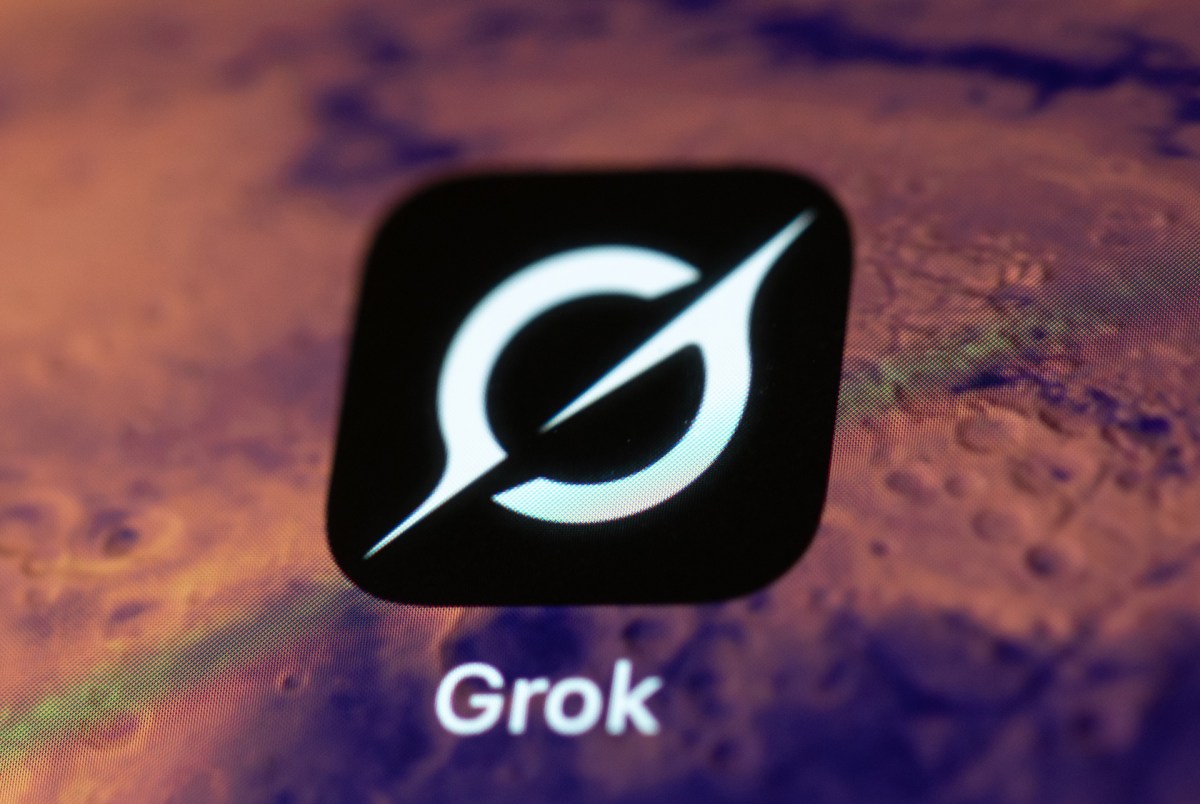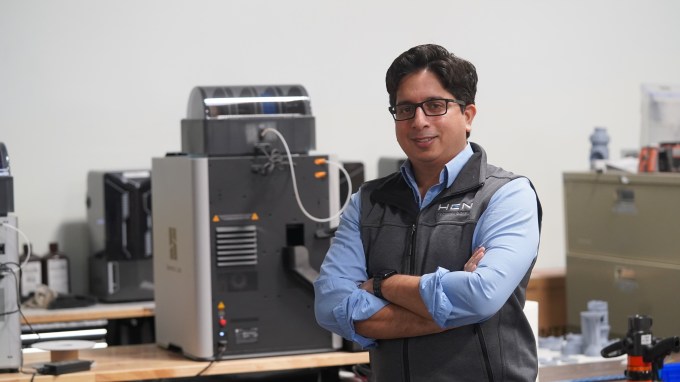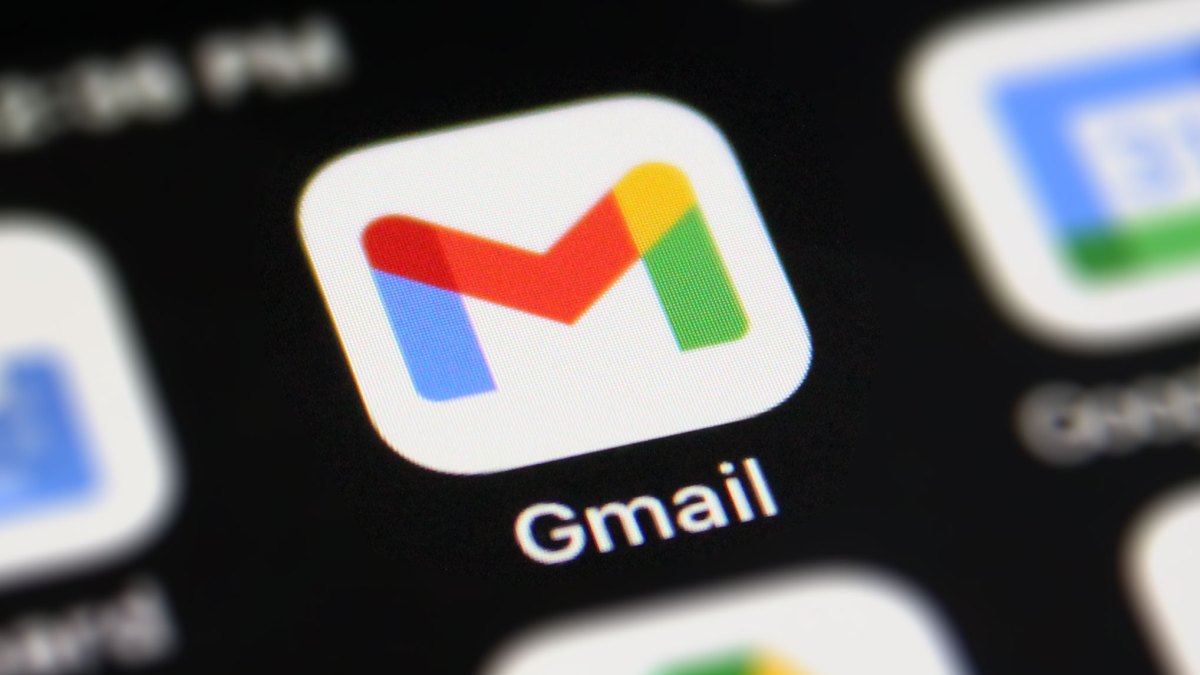Guests conversed and enjoyed prosecco as dessert made its way around at the third iteration of the Project Health Minds Gala, which took place Thursday evening in New York.
The evening neared its end, but one major award remained to be presented: Humanitarian of the Year. This year, the award recognized Prince Harry and Meghan, the Duke and Duchess of Sussex, for their creation of The Parents Network via their Archewell Foundation nonprofit. The Parents Network offers assistance to families affected negatively by social media.
Earlier in the year, the organization held an event featuring giant smartphone screens displaying the faces of young children who had tragically died in circumstances that their parents attribute to social media.
Project Healthy Minds, the nonprofit hosting Thursday’s Gala, is dedicated to providing free mental health support, particularly aimed at young individuals navigating a tech-heavy world. The event, along with the subsequent day’s conference, offered insights into the perspectives of young people and their parents regarding social media, highlighting the profound effects these platforms have had on mental health.
“Allow me to present a figure,” Prince Harry stated as he and his wife stepped onto the stage to receive the award. “Four thousand. That is the count of families currently represented by the Social Media Victims Law Center.”

That figure only accounts for the parents capable of drawing a connection between their child’s distress and social media, possessing the means to “mount a defense against some of the wealthiest and most influential entities globally,” as Prince Harry stated.
He added, “We’ve observed the surge in unregulated artificial intelligence, continue to hear accounts from devastated families, and witness a growing wave of concern among parents worldwide regarding their children’s engagement in digital spaces.”
Techcrunch event
San Francisco
|
October 27-29, 2025
He pointed out that these families are battling corporations and lobbyists who allocate substantial funds to conceal the truth; algorithms are engineered to “prioritize data collection regardless of the consequences,” and that social media is exploiting children.
Furthermore, he criticized Apple for breaches of user privacy and Meta for citing that privacy measures would incur billions in losses. He addressed the risks of AI and recounted an instance where researchers, posing as children, evaluated a popular AI chatbot. “They encountered a detrimental exchange roughly every five minutes,” he noted.
“This wasn’t material originating from a third party,” he elaborated. “These were the company’s own chatbots actively furthering their corrupt internal principles.”
The highlight announcement of the evening was the partnership between The Parents Network and ParentsTogether, another group focused on family advocacy and online safety, to increase their efforts in safeguarding children from social media.
This isn’t the first occasion where Prince Harry, notably, has addressed the harms of social media. Earlier in April, the prince engaged with youth leaders in Brooklyn to discuss the rising impact of tech platforms, which are motivated more by profit than safety. In January, both he and Meghan also criticized Meta for compromising free speech following the announcement of modifications to its fact-checking policy by the platform.
The couple’s opinions regarding the impact of tech firms are widely shared.
Numerous studies have highlighted the detrimental effects of social media on young individuals, sparking a mental health crisis and nurturing a widespread sense of loneliness. The following day, Friday, which was World Mental Health Day, Project Healthy Minds hosted a festival centered around discussions on mental health. In collaboration with Prince Harry and Meghan’s Archewell Foundation, Project Health Minds organized discussions with parents, advocates, and experts concerning the profound ways social media has reshaped childhood.
Following the Gala was a festival dedicated to Mental Health
Harry introduced the initial panel, entitled “How Are Young People Faring in the Digital Era?”
Katie, a panelist, shared how, at just 12 years old, TikTok flooded her For You page with content about dieting and weight loss; this ultimately led Katie to develop an eating disorder.
Isabel Sunderland, another panelist, serves as the policy lead for Design It For Us, an organization advocating for enhanced social media safety.
She remembers stumbling upon an article about the Myanmar genocide, in which Meta’s platform, Facebook, was later implicated. The article spurred her to explore how the platforms she uses regularly were being used as tools that encourage “hate and violence.” She initially attributed her exposure to content on harmful topics like eating disorders to personal failing.
“My research revealed that social media companies intentionally design their platforms to boost addiction and user time,” she explained.

The ensuing panel, which centered on childhood, further explored the damage that social media inflicts on children. It was introduced by Meghan and moderated by journalist Katie Couric.
It commenced with Jonathan Haidt, the author of the controversial bestseller, “The Anxious Generation,” presenting his findings.
Rates of anxiety and depression are increasing. Children are underperforming in school. A growing number of children report feeling that their lives lack meaning. Outdoor playtime has diminished. Children are not developing appropriate social cues because they are not interacting outdoors. Boys are being drawn into gambling addictions. Young individuals are unprepared to resolve real-world conflicts as they primarily exist online.
Despite state-level legislative efforts, challenges persist due to strong resistance from the tech industry’s lobbying efforts.
“Play is crucial for brain development,” Haidt shared with Couric on the panel. “Animals deprived of play during childhood often exhibit higher anxiety levels as adults.”
Even moments of proper boredom — like gazing out a car window or idly waiting in line — are declining. These moments once allowed the brain to recharge but are now replaced with endless scrolling on tablets and smartphones.
Amy Neville, the community manager for The Parents’ Network and President of the Alexander Neville Foundation, also participated in the panel. She lost her son, Alexander, to an overdose and is currently pursuing legal action against Snapchat for enabling drug dealers to connect with her son.

“I soon discovered that families across the United States were finding their children deceased in their rooms due to pills sourced from Snapchat,” she stated. Her legal battle continues. “It feels like a fight to the death,” she declared. “I am prepared to go all the way.”
Kirsten, another mother, took the stage, and is the mother of Katie, the young woman who was on the earlier panel. She spoke of her efforts to protect her daughter—checking her phone nightly and storing it away before bedtime—but Katie still ended up hospitalized with an eating disorder.
Kirsten reviewed text exchanges and search queries. A contact then shared an article exposing how TikTok shares eating disorder content with young girls.
“My husband and I were unaware of the For You page,” she said. “This wasn’t content my daughter sought out; instead, it repeatedly appeared on her feed.”
The consensus from the panel, in alignment with both events, was the need for more decisive action.
Throughout the event, speakers urged legislative action, greater accountability from tech platforms, open dialogue, and stronger collaborative efforts to create boundaries between individuals and social media. Although harm permeates the present, hope endures for the future.
“We have the capacity, and we are determined to establish the movement that every family and every child deserves,” Meghan expressed at the Gala. “We are aware that when parents unite and communities come together, significant progress is achieved. We’ve witnessed it unfold, and we’re observing its continued development.”





